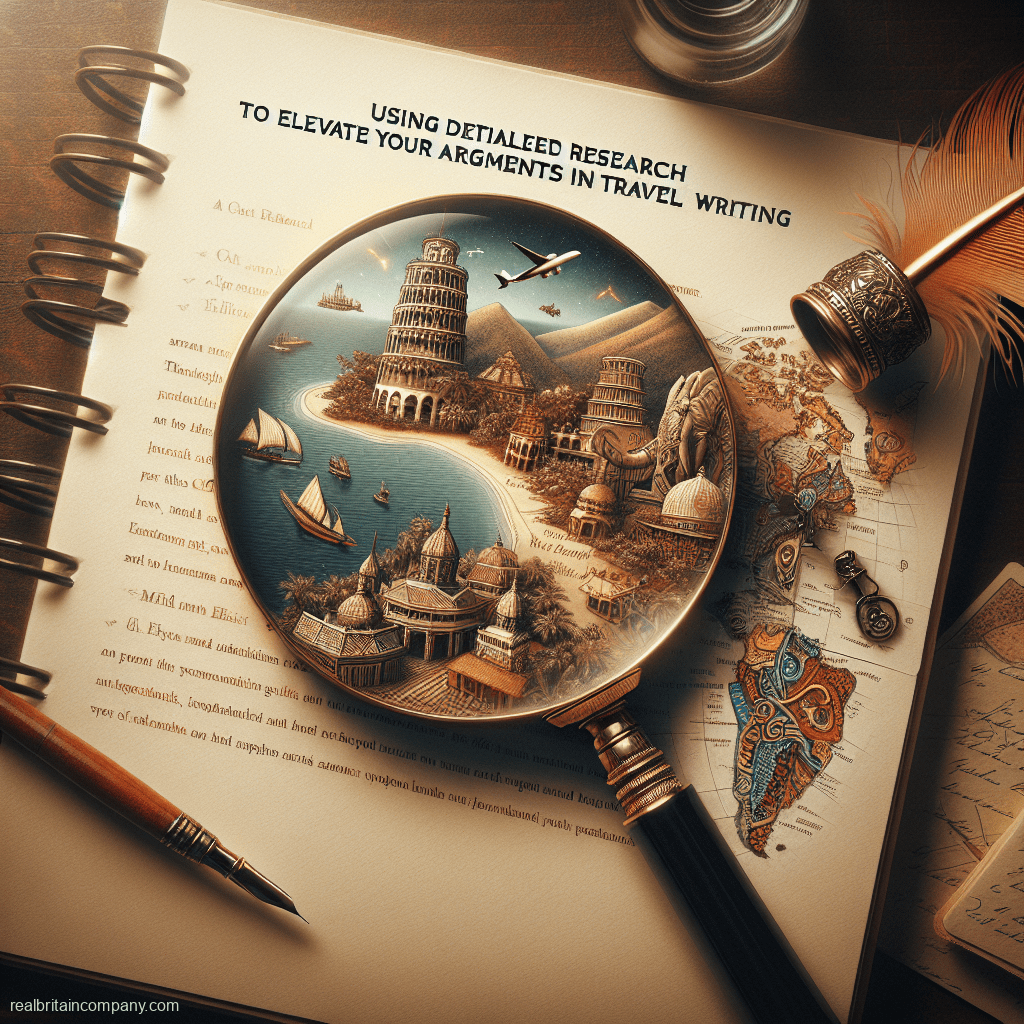

Travel writing is like a smorgasbord for the mind, whisking our imaginations across lands filled with exotic adventures, cultural nuances, and the delectable chaos of new experiences. But what takes a delightful travel article from "meh" to "wow"? In many cases, it’s detailed research. Today, we’ll dive deep into why and how detailed research can elevate your travel writing to new heights, whether you’re penning an article about the grand castles of Scotland or the quirky enchantment of Brighton’s seafront.
Before you even pack your digital suitcase, let’s explore why detailed research is so essential:
Imagine you’re writing about the iconic Stonehenge. You wouldn’t want to erroneously describe it as built by aliens, would you? Unless, of course, you’re writing a satire! For reliable information, sources like academic studies, official tourism websites, and reputable travel books are your best buddies.
Before you set sail on your journey, arm yourself with maps, historical contexts, and lists of top attractions. Knowing that Brighton’s "Choccywoccydoodah" is not just a whimsical name but a world-renowned chocolate shop will help you add delightful anecdotes about your visit.
Nothing beats the authenticity of on-the-ground experiences. Interacting with locals, joining guided tours, and indulging in regional cuisine give firsthand data that’s hard to beat.
Post-trip research can fill in any gaps in your travel narrative. Verify dates, names, and quirky historical anecdotes to ensure your article is both entertaining and accurate.
Rather than dumping a truckload of historical facts onto your readers, sprinkle them artfully throughout your text.
As I strolled along Brighton Pier, munching on a stick of rock, I couldn't help but wonder about its history. Opened in 1899, this Victorian marvel has seen everything from elegant Regency balls to modern-day arcade enthusiasts [source](https://www.brightonpier.co.uk/).Statistics can be an eye-catching way to present information. However, use them sparingly to avoid overwhelming your audience.
Did you know that Stonehenge attracts over 1 million visitors annually? Not bad for a bunch of standing stones that date back to 3000 BC [source](https://www.english-heritage.org.uk/visit/places/stonehenge/)!Quotes from locals or experts add a layer of depth and authenticity. Imagine a chat with a local fisherman about his morning catch at the wonderful coast of Cornwall. Voilà! You’ve just added a compelling, human touch to your article.
"As Martin, a third-generation fisherman from St Ives told me, 'The secret to the best fish and chips lies in the freshness of the catch. Straight from the sea to the pan, that’s the only way.'"Let’s look at some instances where detailed research brilliantly elevates the travel narrative.
Humour: A pinch of humour spices up your facts. Think of it as the Worcestershire sauce of writing.
Visuals and Maps: Incorporate photos, maps, or videos. A picture is worth a thousand words, especially when showing the stunning cliffs of Dover or the bustling Borough Market.
In summary, detailed research is the hidden treasure chest of travel writing. It’s what takes your readers from mere spectators to engaged participants in your journeys. From choosing reliable sources to incorporating engaging facts and quotes, research adds layers of credibility, uniqueness, and authenticity to your writing. So the next time you’re crafting an article, remember: every fact, anecdote, and quote is another stitch in the vibrant tapestry of your travel narrative.
When have you found a well-researched travel article more engaging? Share your thoughts and experiences in the comments below!
